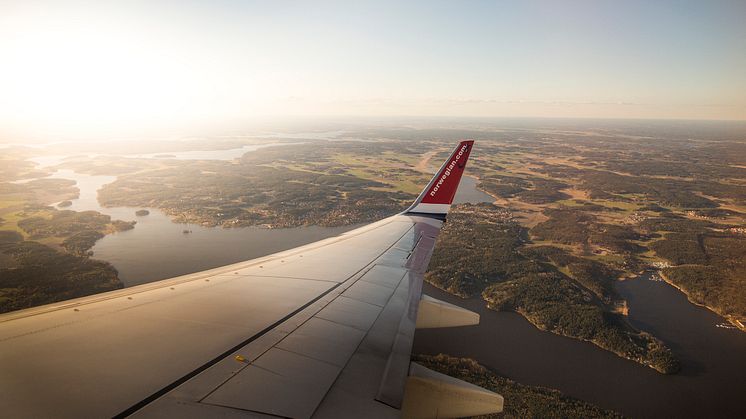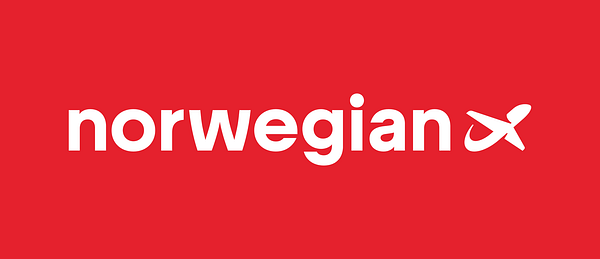
Press release -
Norwegian becomes co-owner of Norsk e-Fuel
Norwegian is now a shareholder in Norsk e-Fuel. The company will establish what could be the world's first large-scale production facility for electrofuel. The fossil-free jet fuel will be produced at a plant in Mosjøen in Nordland. The partnership will give Norwegian early access to essential fossil-free aviation fuels.
In 2023, Norwegian and Norsk e-Fuel signed a strategic partnership agreement to build the world's first large-scale production facility for electrofuel in Mosjøen, northern Norway. Electrofuel, often called e-fuel, is a fossil-free aviation fuel that can be used in today's aircraft. The partnership is an important milestone towards Norwegian's goal of reducing emission by 45 percent by 2030.
"This agreement marks the start of a pioneering partnership that will accelerate the transition to fossil-free fuels in aviation and give us access to a product that will be available in limited quantities. Increased production of this type of fuel is essential in the years to come if we are to succeed in the transition to more sustainable aviation. I am very pleased that we have the resources, expertise and technology to do this with Norsk e-Fuel in Norway, and that together we can contribute to the development of a new industry in Norway and create local jobs, said Geir Karlsen, CEO of Norwegian.
“We have ambitious plans to ramp-up e-Fuel production as soon as possible to deliver fossil-free fuels to the aviation industry. The commitment of Norwegian and our new partners are not only a sign of trust into our mission, our business concept and our team. They also show the understanding of the critical role of e-Fuels in shaping a future for aviation that is free from fossil fuels—both in Norway and across Europe.”, said Karl Hauptmeier, CEO of Norsk e-Fuel.
The partnership agreement with Norsk e-Fuel secures Norwegian an ownership interest in the company and long-term access to fossil-free aviation fuel. In the first phase, Norwegian has invested more than NOK 12 million, and will invest a further NOK 45-50 million at the next milestone in the project. This secures Norwegian more than 7,000 metric tonnes of fuel per year from the first factory, and volumes could increase to 29,000 metric tonnes annually if the next two planned factories become operational. The factory at Mosjøen is set to be the first of its kind in the world and will help accelerate the production and availability of this type of fuel.
"The partnership with Norsk e-Fuel is fully in line with our ambitions of cutting emissions, and electrofuel can be a change of pace for our entire industry. It is not only central to Norwegian and our efforts to reducing our own climate footprint, but it is also a milestone for aviation in Norway," said Karlsen.
7,000 metric tonnes of fossil-free fuel produced in Mosjøen corresponds to Norwegian's total consumption for carrying 430,000 passengers between Bodø and Oslo. By comparison, approximately 550,000 passengers travel between Oslo and Bodø each year.
Airlines in Norway are already required to buy and use fossil-free aviation fuels today, and the EU decided last autumn that similar requirements will be introduced from 2025. By 2030, the fossil-free aviation fuel blending requirements in Europe will be 6 percent. This will gradually increase to 70 per cent in 2050, half of which will be electrofuel.

Topics
Categories
About Norwegian
Norwegian is the largest Norwegian airline and one of Europe’s leading low-cost carriers. The company has around 4,500 employees and offers a comprehensive route network between Nordic countries and destinations in Europe. Since 2002, more than 300 million passengers have flown with Norwegian. The most important task has been to offer affordable plane tickets to all and to offer more freedom of choice along the journey.
Norwegian is a driving force for sustainable solutions and the transformation of the aviation industry. The company’s goal is to reduce its CO2 emissions by 45 percent within 2030. To this means, the company is renewing its fleet, promoting sustainable aviation fuel, reducing its waste, and using wind and weather data to calculate the most efficient fuel-saving flights routes. Norwegian wants to become the sustainable choice for its passengers.




